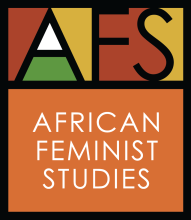Mail & Guardian: Transforming UCT: Reflections on the road ahead

âTransforming UCT: Reflections on the road ahead

LinkedInTwitterGoogle+Facebook73Email
Statement by The UCT Black Academic Caucus
It has been encouraging to witness the revolutionary changes taking place at UCT over the past few years: the fall of the Cecil John Rhodes statue, the return of Mahmoud Mamdani, the renaming of buildings, the dialogues around sexual violence, artworks and curriculum change, and the many less visible day-to-day shifts in attitudes, practices, and policy-making.
Against this backdrop, we are, however, also witnessing the backlash of the white liberal establishment. Accusations of deceit and malicious calls to discredit two recently appointed black women DVCs at UCT are blatant displays of the lingering racist and sexist culture of the establishment. Familiar stereotypes of black underachievement and incompetence rear their ugly heads in a context where attention to racial disparities has become intolerable to the fragile white elite, triggering aggressive and defensive responses. This backlash illustrates what is wrong at UCT. As Prof Feris is accused of populism and of hosting a conspiracy theorist, Prof Phakeng is demeaned via attacks on her personality and scholarship. The UCT Black Academic Caucus (BAC) will continue to monitor and call out both overt and covert malicious racist and gendered attacks on black members of this institution.
BAC has long been fighting against the exclusion and undermining of black academics and it is this common cause that brought us together in the first place. Such racist practices are not always as blatant and crude as we have seen in the past few days. Strategies employed during selection committee meetings are less subtle. We often hear statements, such as “we need someone who can hit the ground running” or “it’s just not a good fit”, when black academics get passed over for appointments. We have seen the subtle and not so subtle ways in which black scholarship is subjected to excessive scrutiny in Ad Hominem promotions committees.
We have also witnessed how the authority of black Faculty Deans is challenged by insubordinate white, mostly male, professors. It is no surprise therefore that, as the institution continues to transform, these everyday experiences are now reaching those within the highest ranks of the university. It is for these reasons that the BAC has called for a re-composition of UCT institutions, such as the Senate, with the purpose of making them more representative and transparent.
Resistance to calls for transformation and decolonisation of our institution are nothing new. What is different is that UCT has changed. Exhibitions of pathological whiteness, which would have previously gone unnoticed, unchallenged, and unaccounted for are no longer met with silence. Following the Rocking the Daisies incident, racist rants have been circulating via emails, including abusive emails to students by members of the academic staff. These are abuses of power that expose a lack of respect towards particular members of the institution.
In the last few months there have been those who have questioned the existence of the BAC in an institution that aspires to transform and decolonise. Others have gone as far as attempting to characterise the BAC as a racist organisation. We ask of them to consider whether UCT is succeeding in its aims to embrace diversity and inclusivity when its academic staff complement is still largely white. There are departments that have yet to employ a single black academic.
If the university aspires to be truly equitable and just, we should be able to see uniform support for the project of transformation. This has not been the case. Some have even complained that the discourses of transformation and decolonisation have made them uncomfortable because they mention race. Some consider it racist to speak of the ways in which racialised and gendered relations of power continue to shape the operations of the institution – that is, to name the mechanisms through which white heteronormative privilege continues to secure its interests at the expense of the public interest. But, of course, the act of calling out racialised and gendered inequities does not make one racist or sexist. It merely draws our attention to the patterns of unequal relations of power that continue to function in our institution with a view to correcting these inequities.
The BAC will continue to speak about racial and gendered contradictions at the university. When so few of the academic staff of some faculties are black South Africans, we cannot remain silent. To do so would be to accept the fact that the legacy of apartheid continues to betray UCT’s aspirations to become a diverse and inclusive public institution.
The recent attacks on black DVCs at UCT come in the wake of the institution’s search for a new Vice Chancellor in 2018 following the end of Dr Max Price’s term. Should these attacks be read as a warning to black applicants? Let us remind ourselves that Rhodes fell because black students demanded it. This could have been a collective effort, but instead it was largely left to black students to move the conversation forward. As the BAC, our own struggles compelled us to join and support the conversation. We now ask, is it going to be left to black staff and students to put UCT’s strategic plan into action? - Daily Vox
